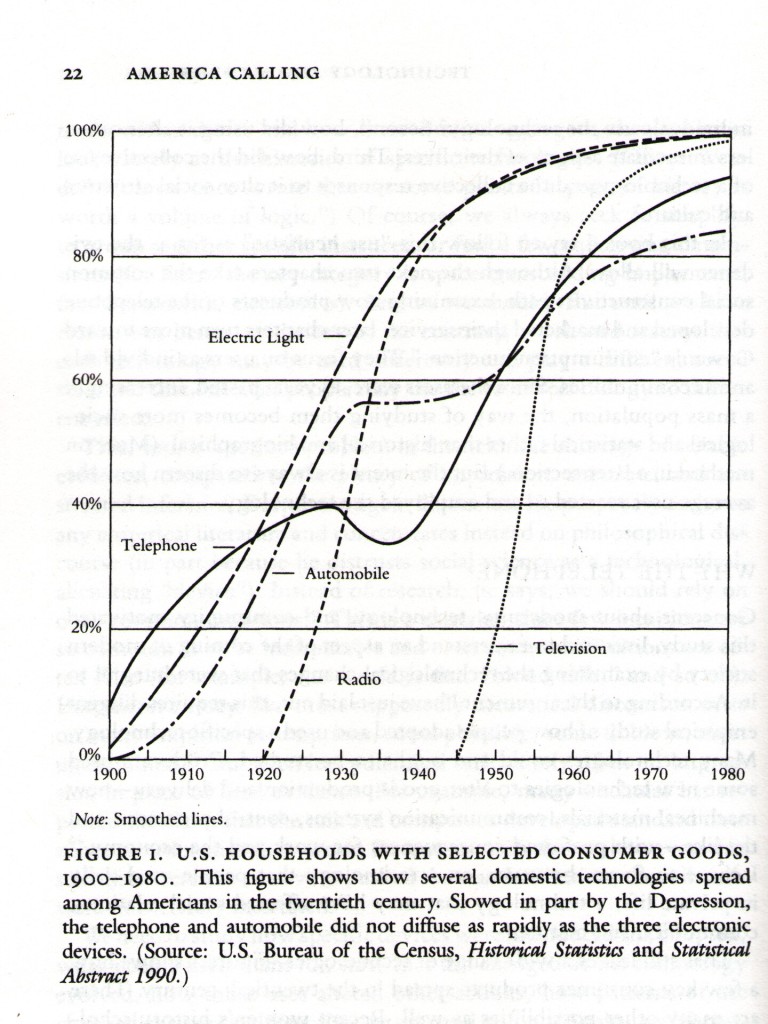Download assignment 1 in docx or pdf. We will talk about assignment 1 briefly at the beginning of class on Thursday.
Images from Today’s Lecture
Interpretative Flexibility of File-Sharing Websites
by Victor Starostenko, Kate Hsiao, Peter Nguyen
Last January, the New Zealand government took down Megaupload, a file-sharing site founded by Kim Dotcom, since the site was found guilty of disseminating copyrighted materials and committing racketeering. A year after the closing, Dotcom launches a new version of the site called Mega, which now encrypts files on users’ computer before they are uploaded, so files on Mega will not be able to be read by anyone, including government officials when conducting investigations.
Pennyfarthing Race and Crash
Watch people racing Pennyfarthing bicycles in 2010. Crash at the very end of the 1:33 clip illustrates their precariousness and what it looks like when someone makes a “header.”
Lone Holdouts
On those who consciously resist adopting a widespread technology – an article in the New York Times on The Facebook Resisters. On one of today’s in class topics – the transition of a technology from increasingly widespread diffusion to near ubiquity.
For Today
Online Education, Impersonal Meanings
By: Ignacio Perez, Andrew Win, Sydney Friedman
Online education is becoming an extremely popular means of obtaining an education. In reading The New York Times piece, “Revolution Hits the Universities”, various questions come into fruition that relate to the sociological analyses Fischer explores with regards to the telephone. The article points out that “last May, about 300,000 people were taking 38 courses taught by Stanford professors and a few other elite universities. Today, they have 2.4 million students, taking 214 courses from 33 universities, including eight international ones,” which makes us wonder if online education has the potential to reach the status of “commonplace” as described by Fischer.
Delicious Links
In case you didn’t see the link buried in the ‘class participation’ page, here are 203 relevant links that we are continually collecting over at delicious.com.
Office Hours – updated
GSIs:
Stuart Geiger, Office Hours: Tuesdays 1-3pm, 1st floor alcove, South Hall
Jen Schradie, schradie [AT] berkeley [DOT] edu, Office Hours: Thursdays 12:30-2:30, 1st floor alcove, South Hall
Prof. Jenna Burrell, Office Hours: Tuesdays 4-6pm, Room 312, South Hall
Call Me, Maybe … But Not on That Device
Call Me, Maybe … But Not on That Device
by: Deb Linton, Corey Hyllested, Lazar Stojkovic
Today, savvy consumers are aware of the symbiotic relationship between users, technology platforms, and their producers. This wasn’t always the case. In “America Calling,” the nascent Bell telephone network and its proprietors didn’t appreciate the emergent behaviors in its users until it understood how to monetize them. Bell saw its recommended use of the new technology as the only one valid to be supported and endorsed. While we may like to think of this problem as limited to early 20th century, we see divergent views of how to incorporate user behavior even today.

